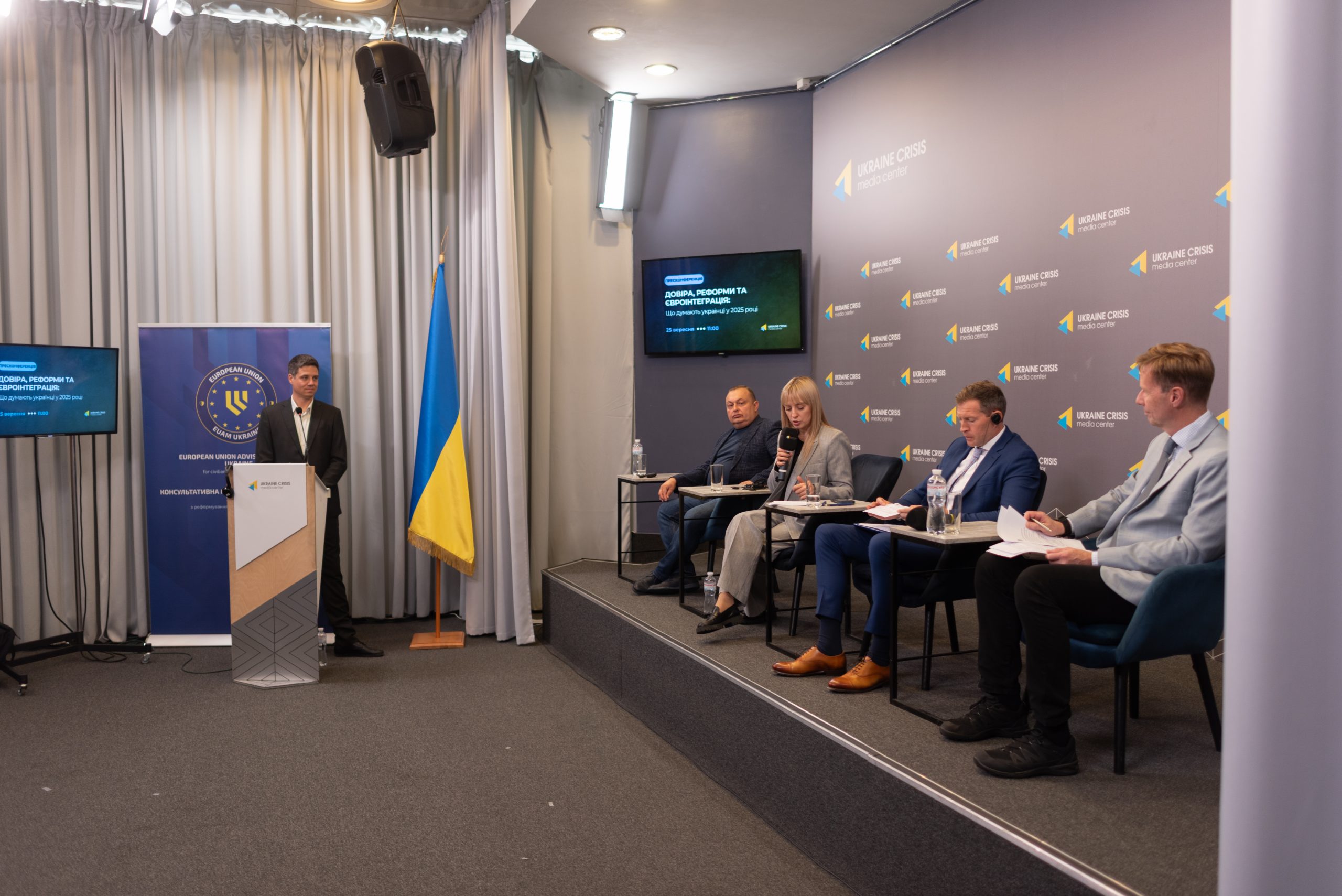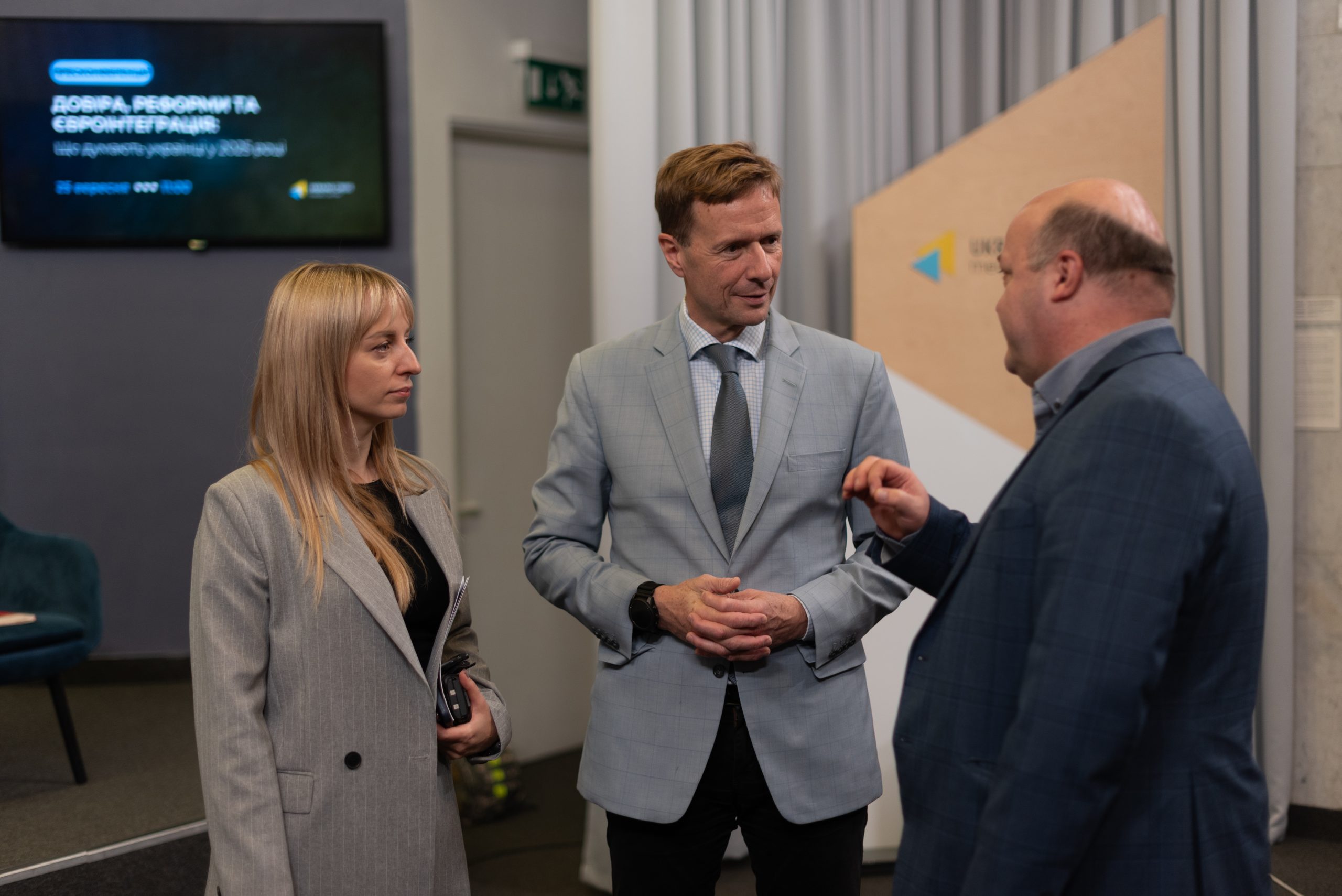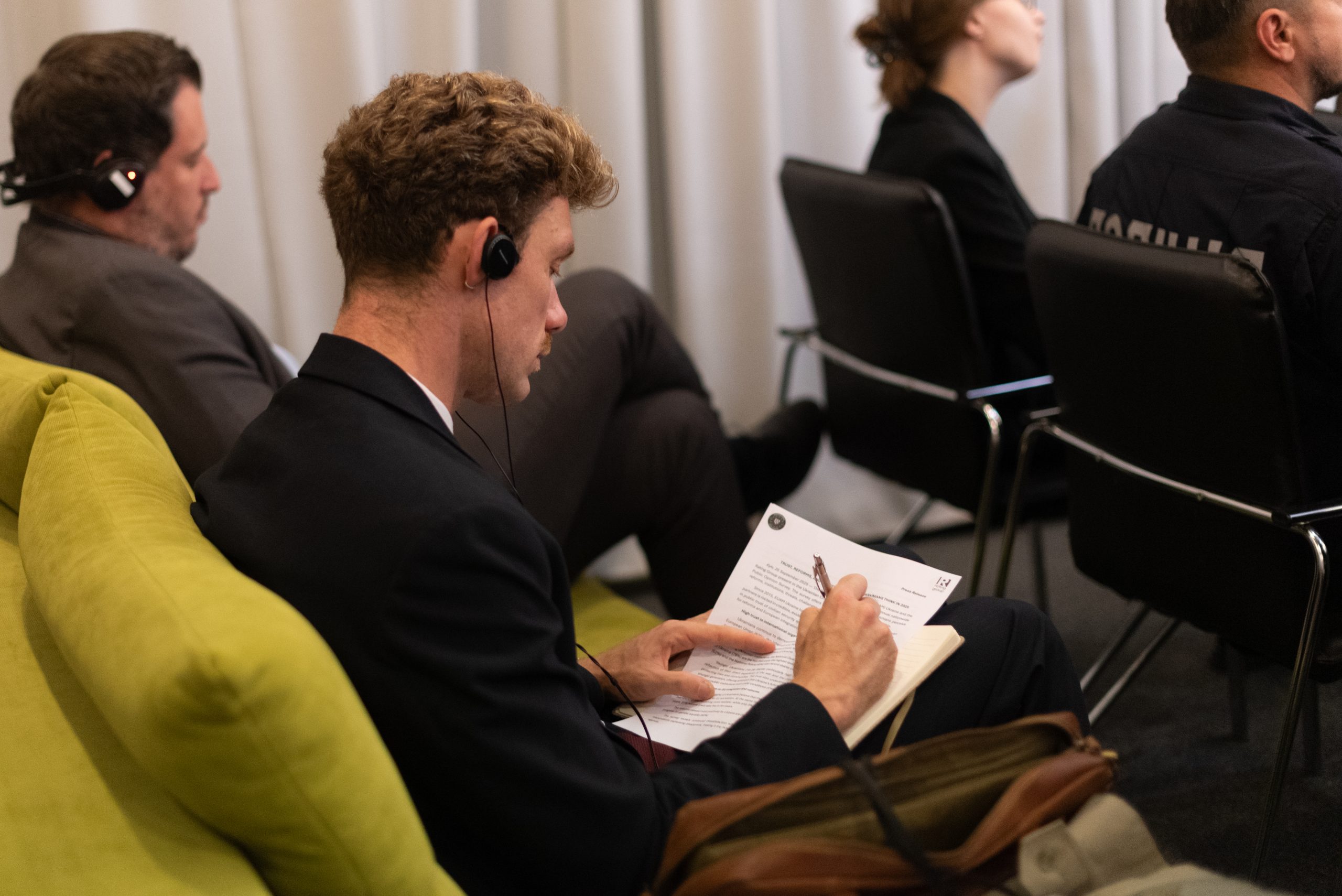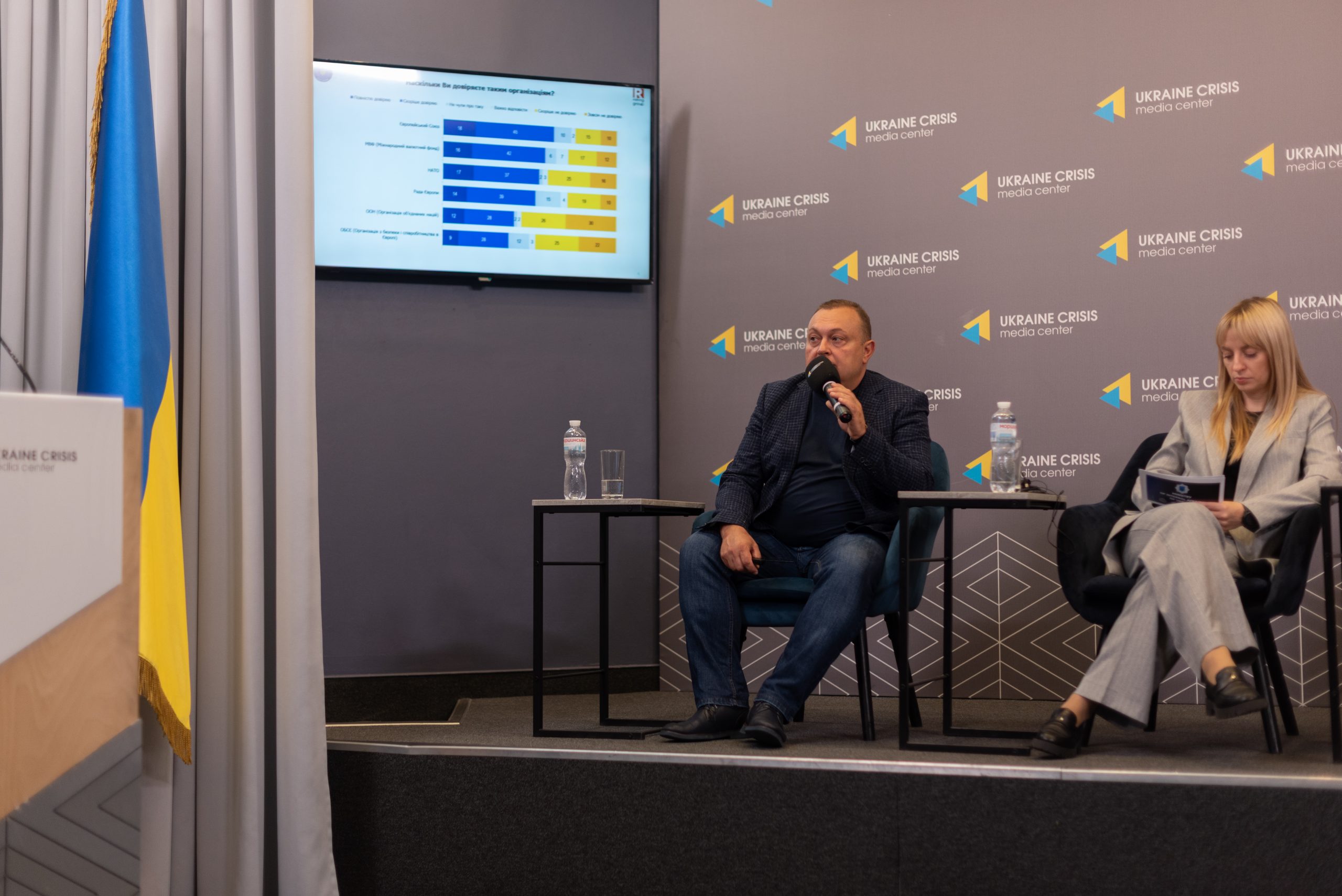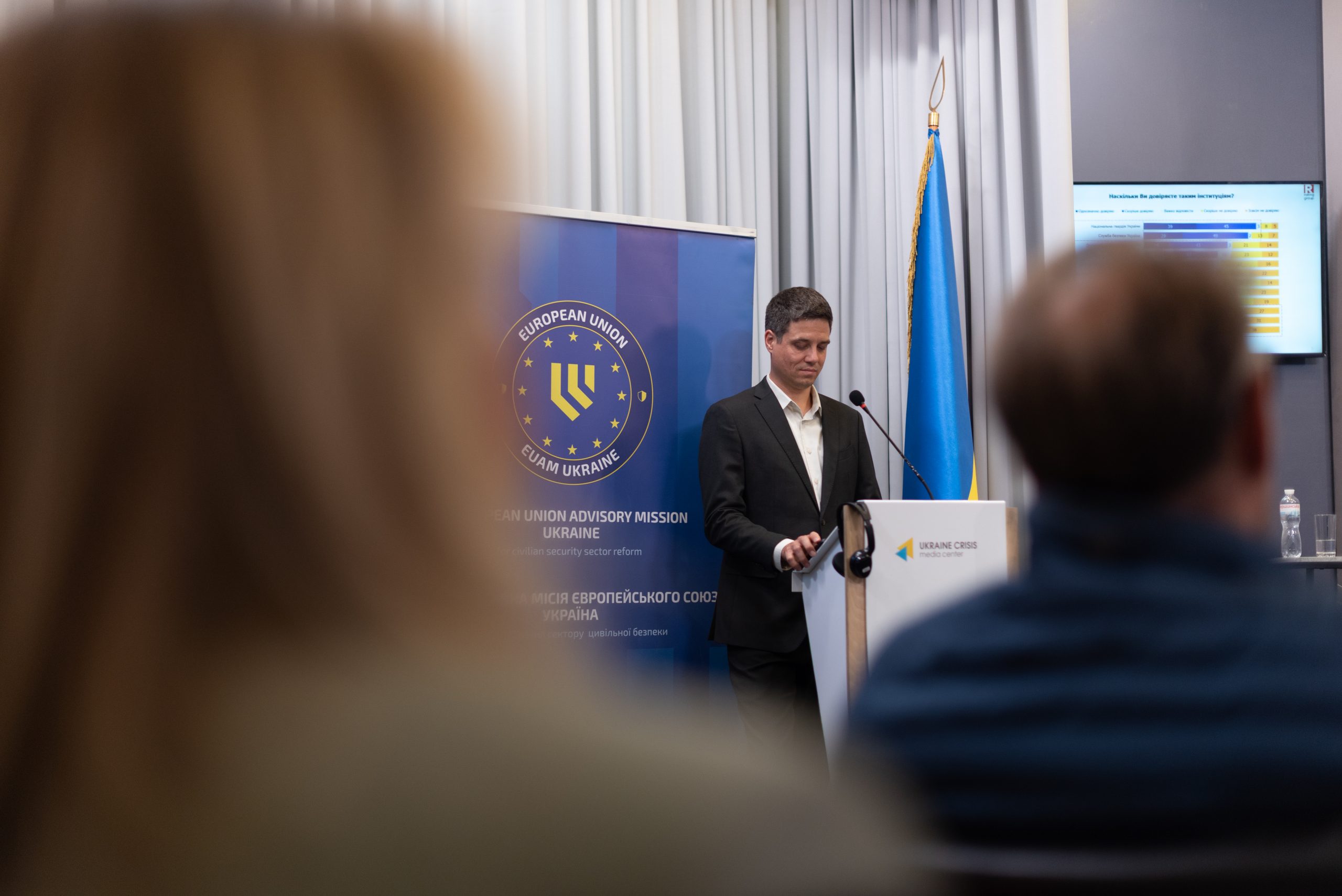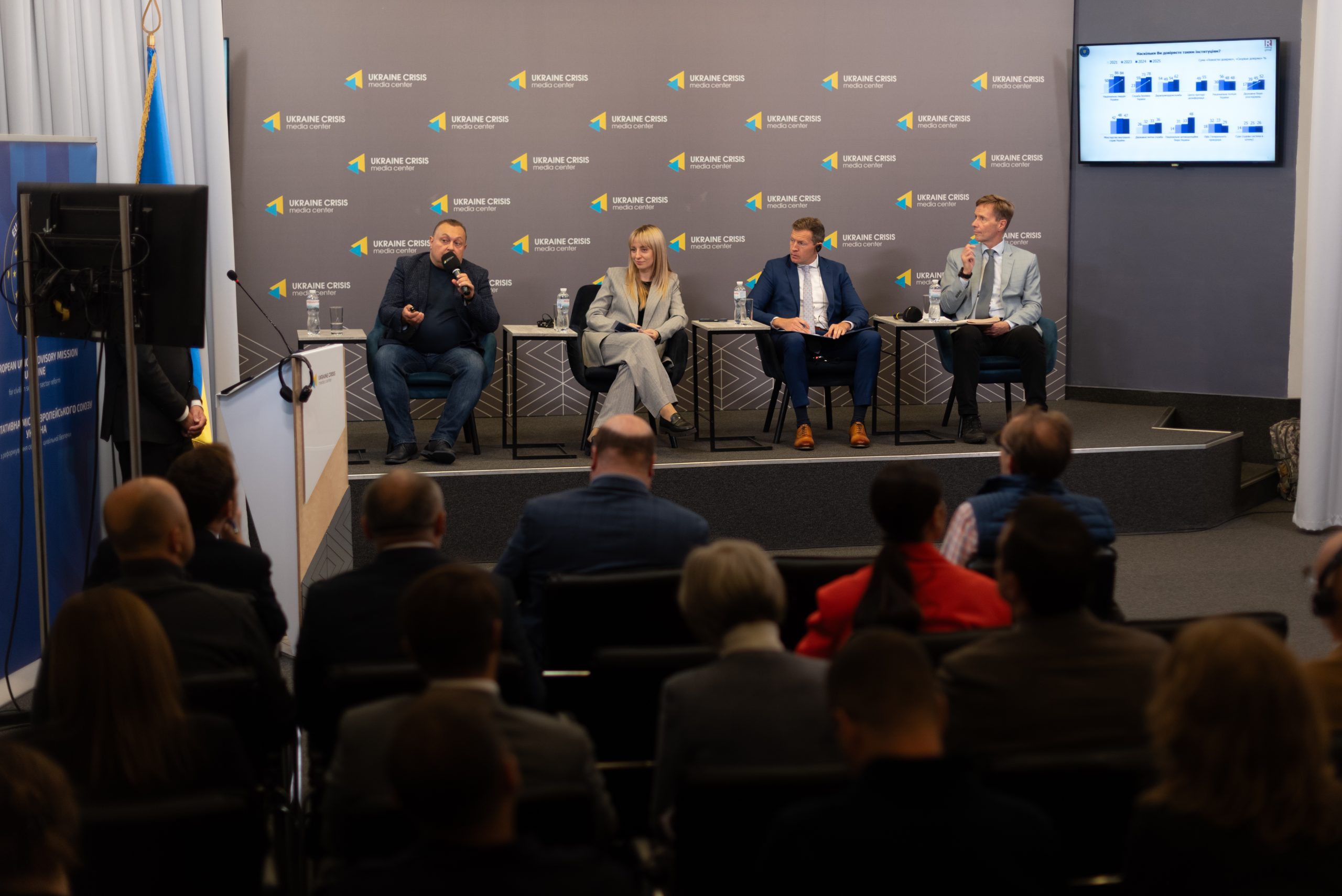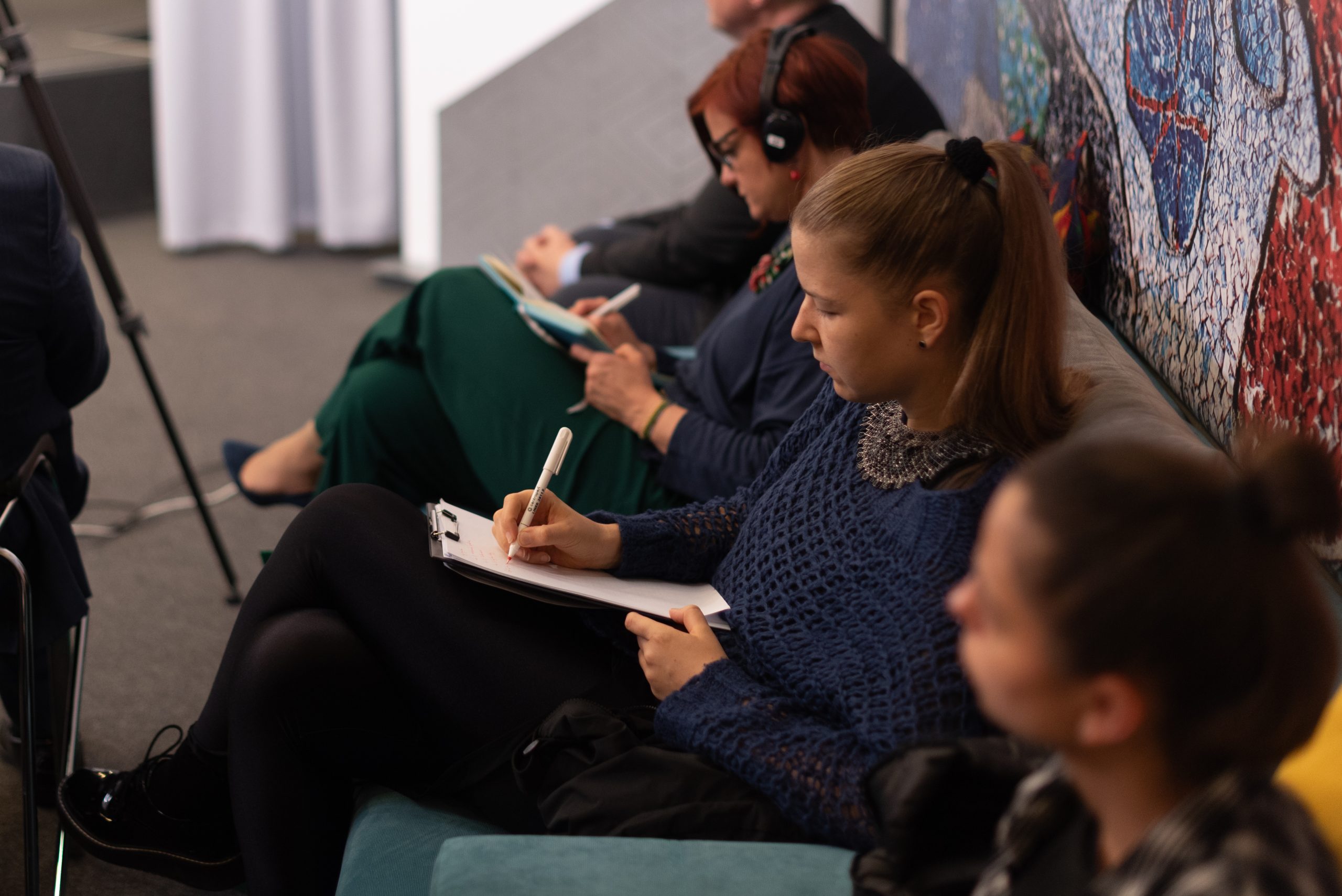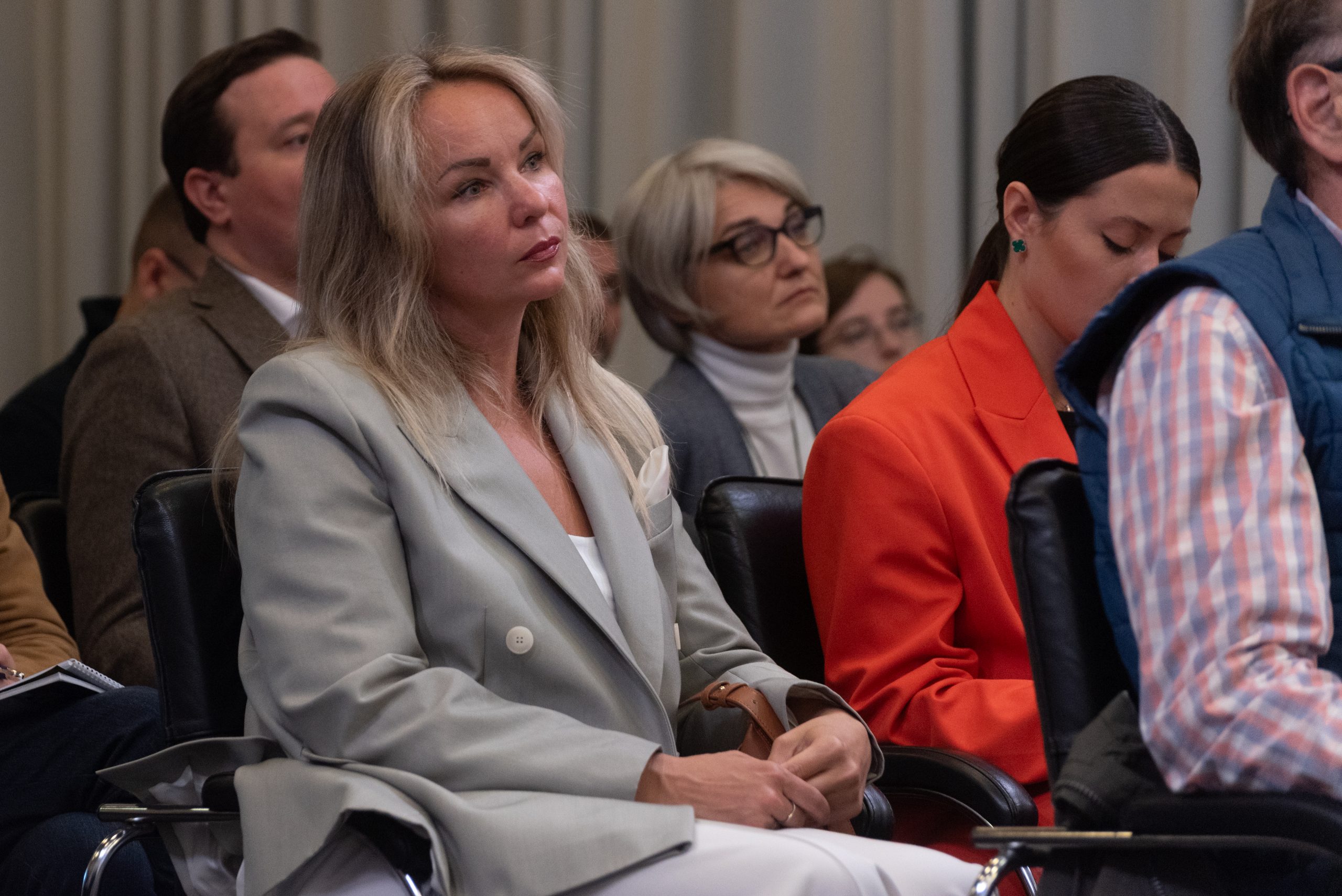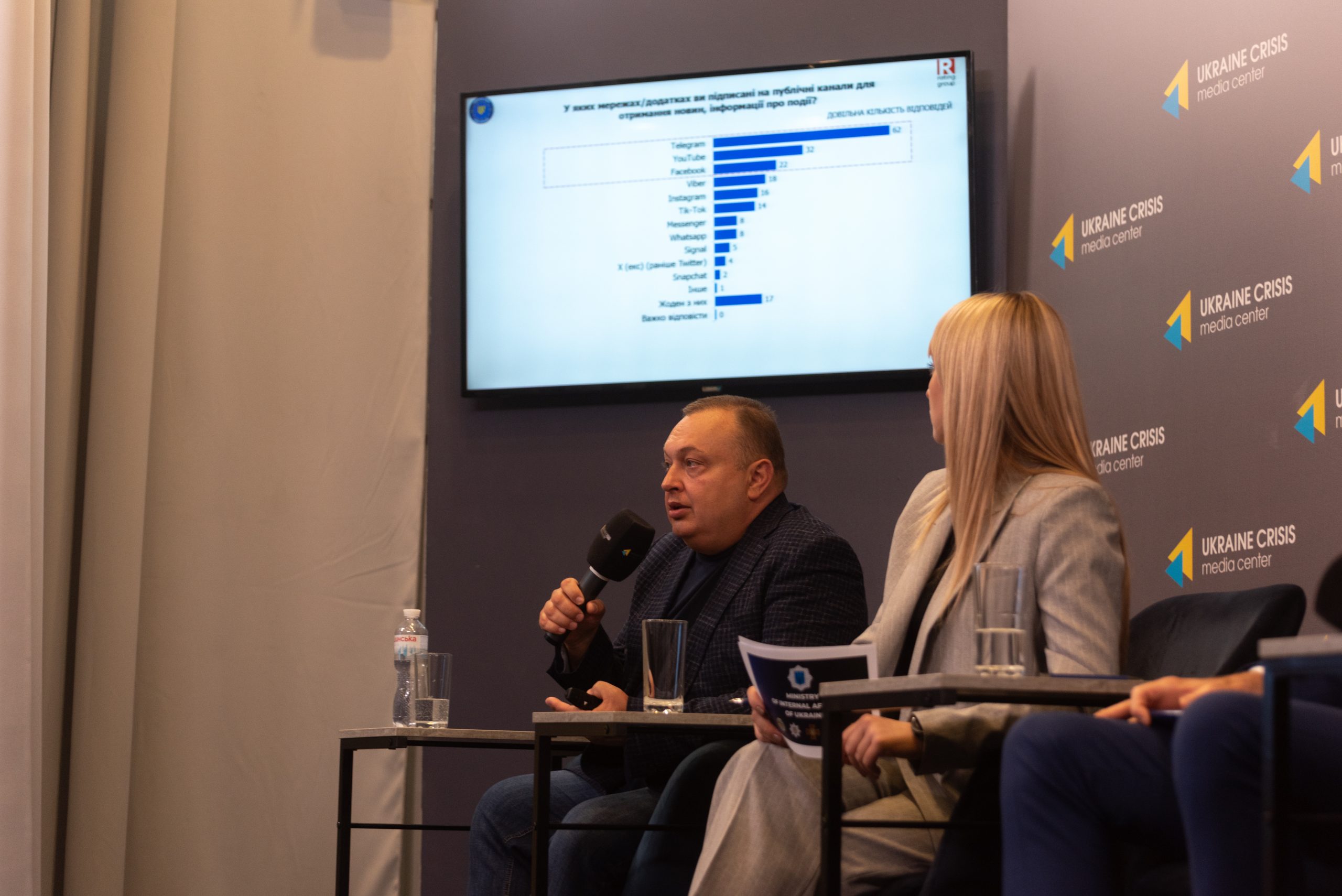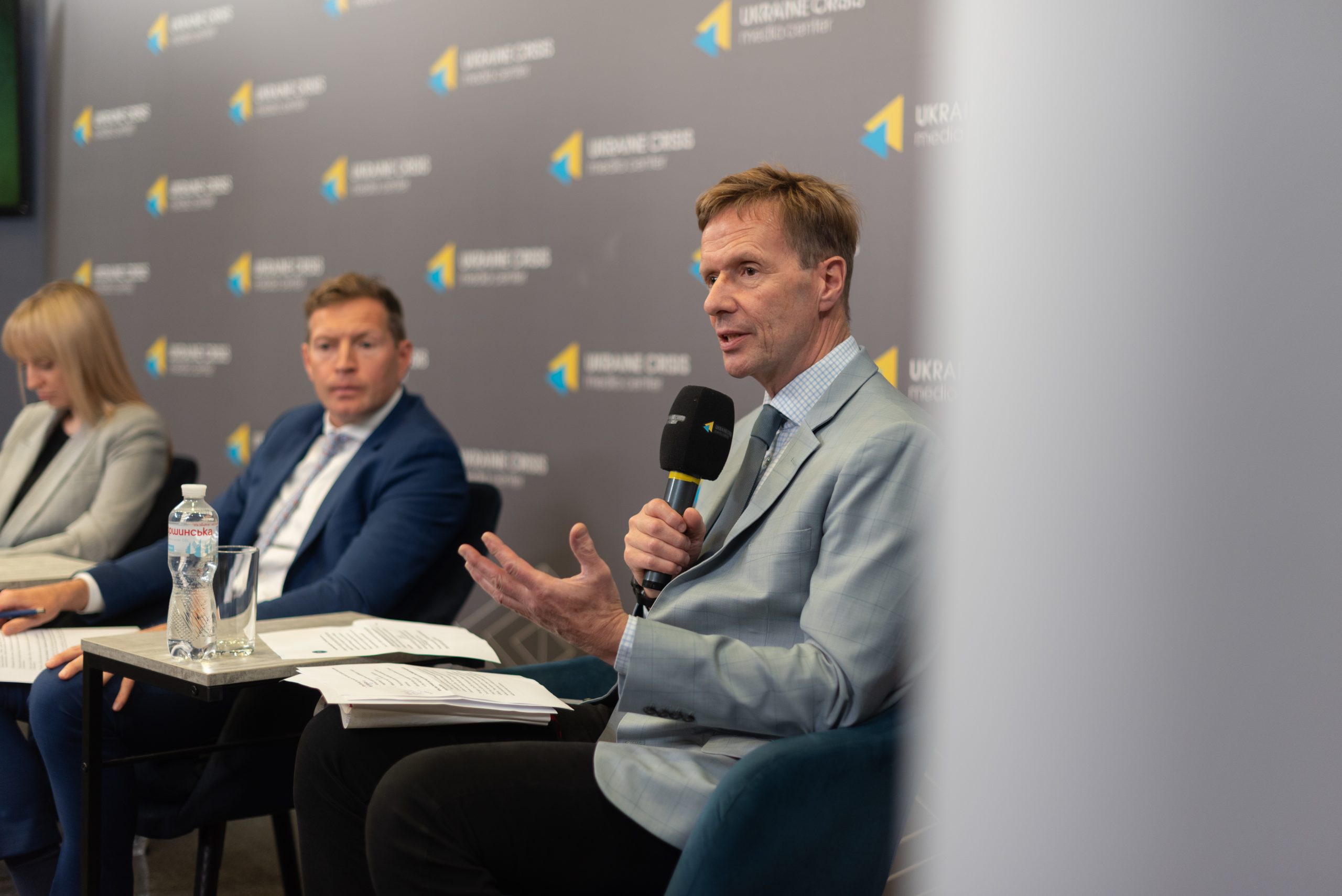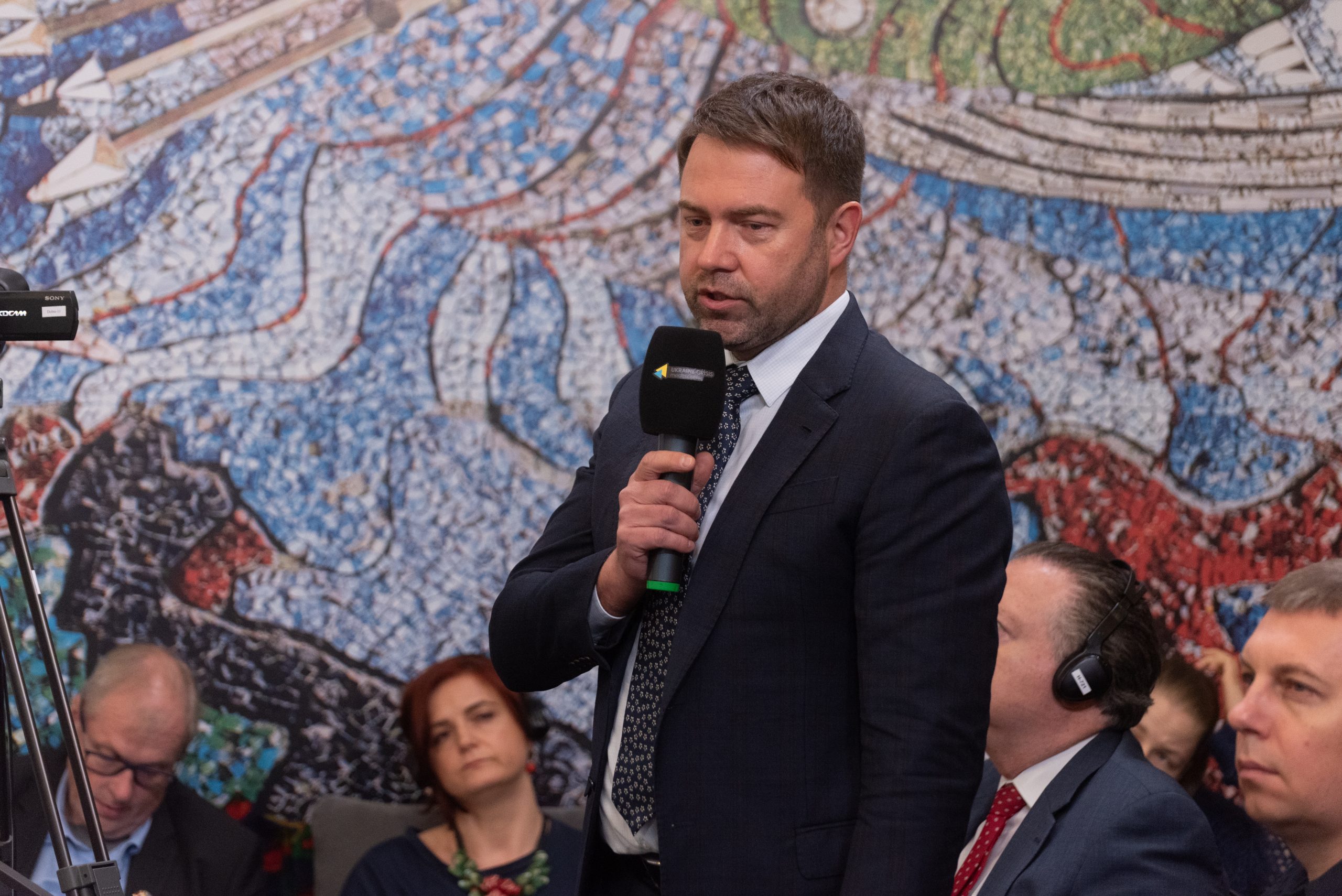TRUST, REFORMS, AND EU INTEGRATION: WHAT UKRAINIANS THINK IN 2025
September 25, 2025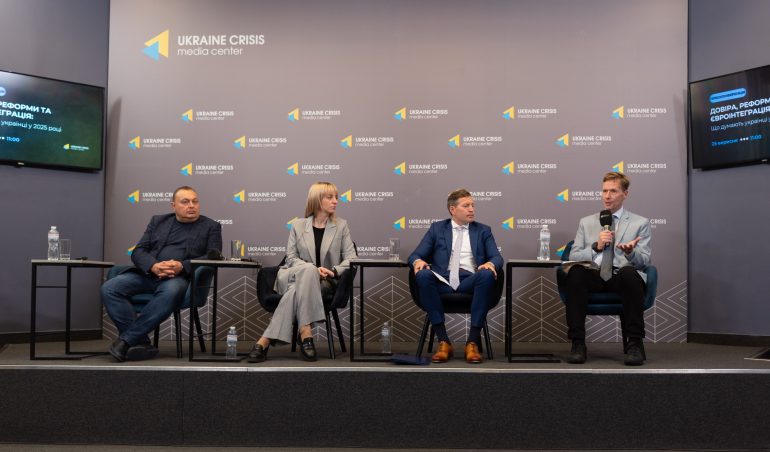
The European Union Advisory Mission (EUAM) Ukraine and the Rating Group presented the results of the annual nationwide Public Opinion Survey at the Ukrainian Crisis Media Centre in Kyiv. The survey provides a comprehensive snapshot of how Ukrainians view reforms, institutions, challenges, and the country’s path toward EU membership.
Since 2015, EUAM Ukraine has commissioned this survey to ensure that its support to Ukrainian partners is rooted in credible, evidence-based data. The 2025 results highlight encouraging levels of public trust in civilian security sector institutions, alongside persisting concerns in areas crucial for reforms and European integration.
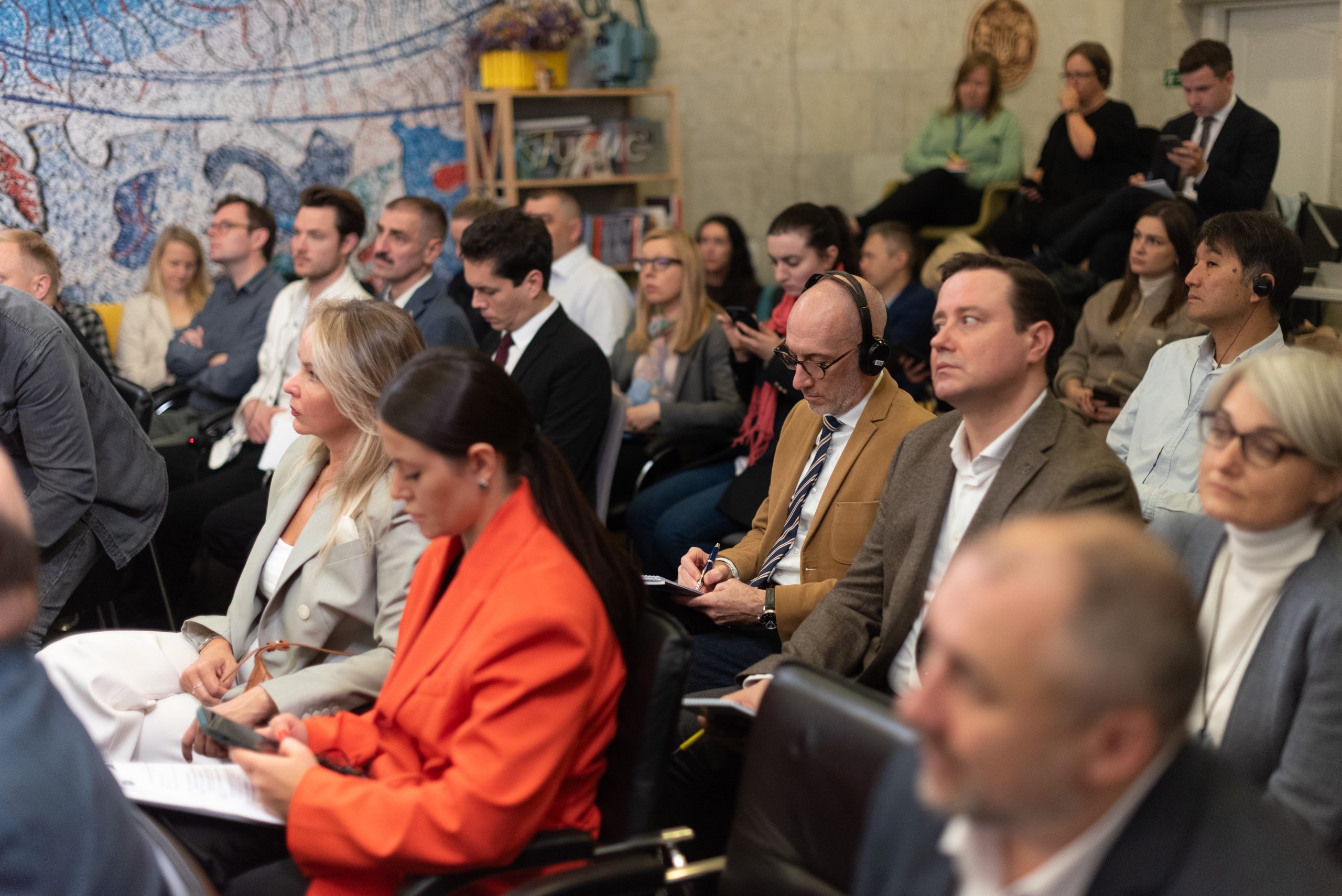
High trust in international and national institutions
The results show that Ukrainians continue to place strong confidence in their international partners. The European Union (63%), the International Monetary Fund (58%), NATO (54%), and the Council of Europe (53%) enjoy the highest levels of trust, while the United Nations (40%) and the OSCE (37%) also remain important supporters.
Among domestic institutions, the National Guard of Ukraine (84%) and the Security Service of Ukraine (78%) recorded the highest levels of trust. The State Border Guard Service (62%) and the National Police (48%) also maintain stable confidence. Younger Ukrainians (18–29) stand out with particularly high trust in security agencies, reflecting both their direct experience of the war and recognition of reforms.
“Surveys like this one are important to understand the level of public trust in the civilian security sector agencies,” said Rolf Holmboe, Head of EUAM Ukraine. “It gives invaluable feedback from the public whom the agencies serve and protect. It is key to understanding what is going well and where there is discontent, and therefore also for adjusting work and for orienting communication and dialogue with the public.”
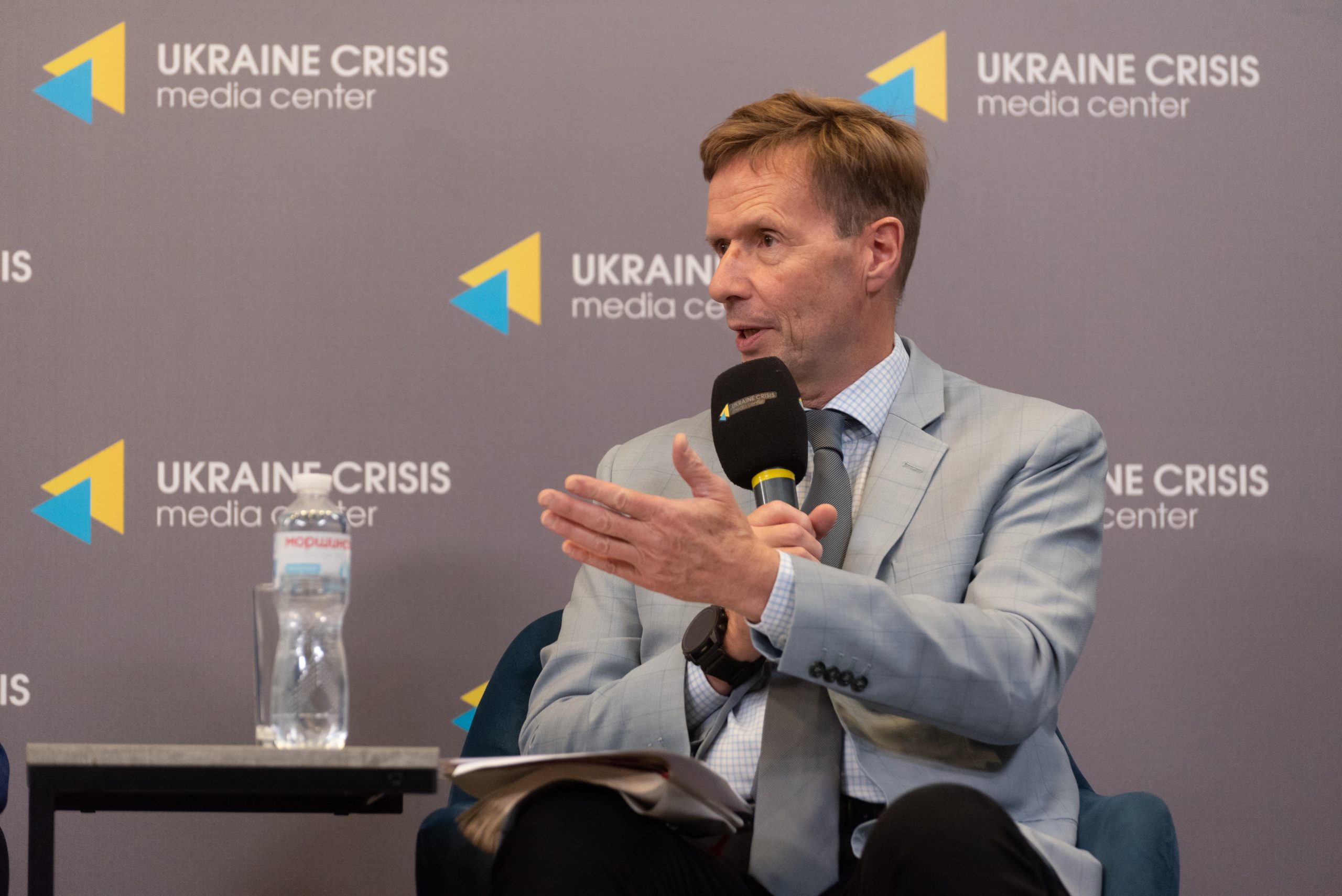
Holmboe stressed that the Ministry of Internal Affairs and its agencies face “herculean tasks” in supporting the civilian population during the war while simultaneously undertaking reforms towards EU accession. At the same time, he underlined that the survey shows continued public dissatisfaction with anti-corruption efforts, which remain a serious concern.
Views on EU integration and reforms
A strong majority of Ukrainians (68%) believe the country will succeed in implementing the reforms required for EU accession. At the same time, expectations about the timeline are becoming more realistic: while just 8% expect accession within one to two years, 31% believe it will take five to ten years.
The reforms most positively evaluated by citizens are digital transformation (70% satisfied) and gender equality (60%). By contrast, anti-corruption efforts remain the biggest challenge, with 86% expressing dissatisfaction.
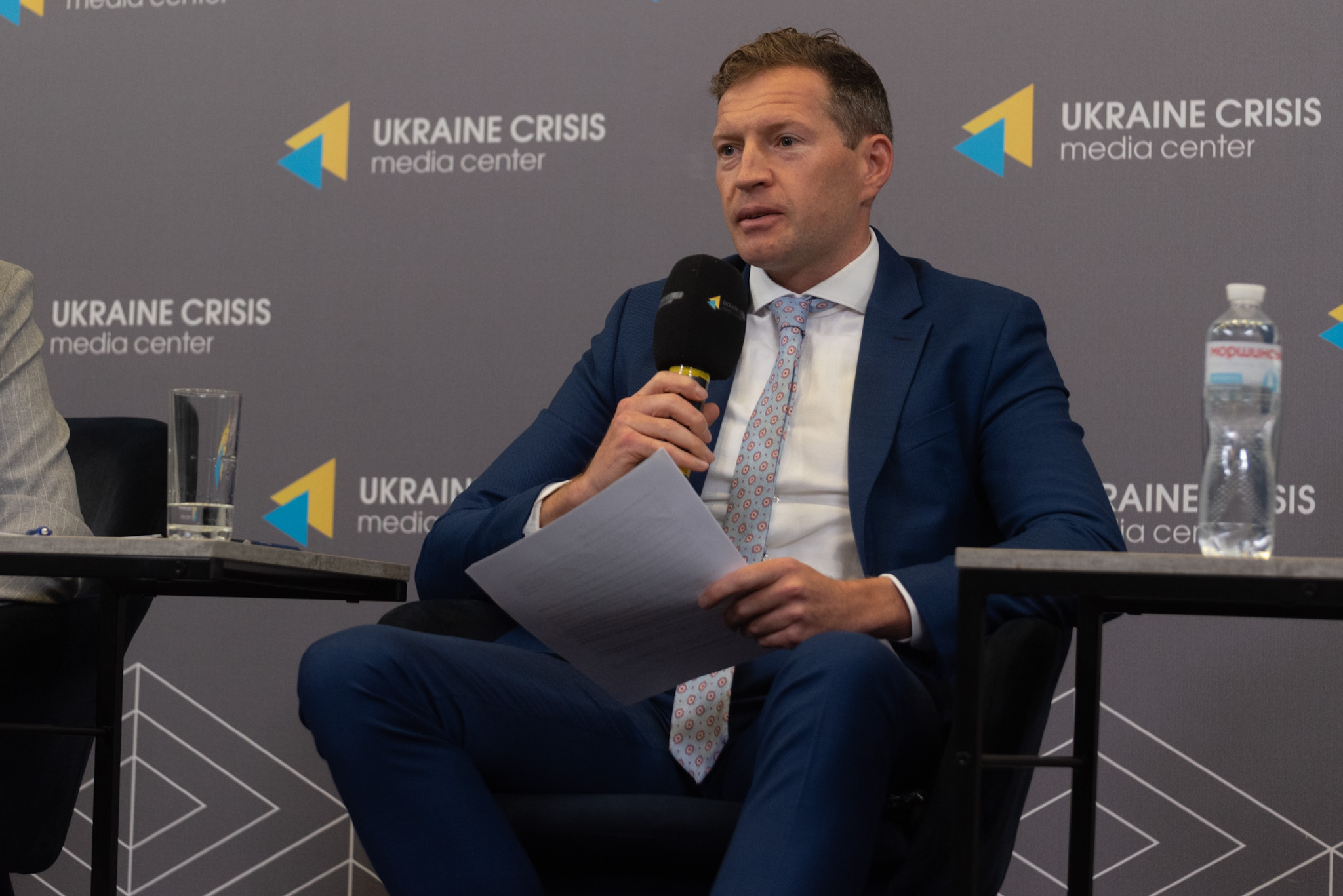
Gediminas Navickas, Deputy Head of the EU Delegation to Ukraine, commented: “We see that the people of Ukraine are extremely committed to their future in Europe. It also shows that this is a difficult choice, and people are now fighting and dying for freedom, honour, dignity and their place in the European family. And we, as the European Union, naturally support Ukrainian citizens.”
Public expectations of EU support
When asked about the most relevant forms of EU assistance, Ukrainians pointed to the fight against corruption (62%), support in investigating war crimes (44%), and assistance to liberated territories (40%). Strategic communication was identified as the most effective area of EU support (55%), followed by EU accession consultations (49%).
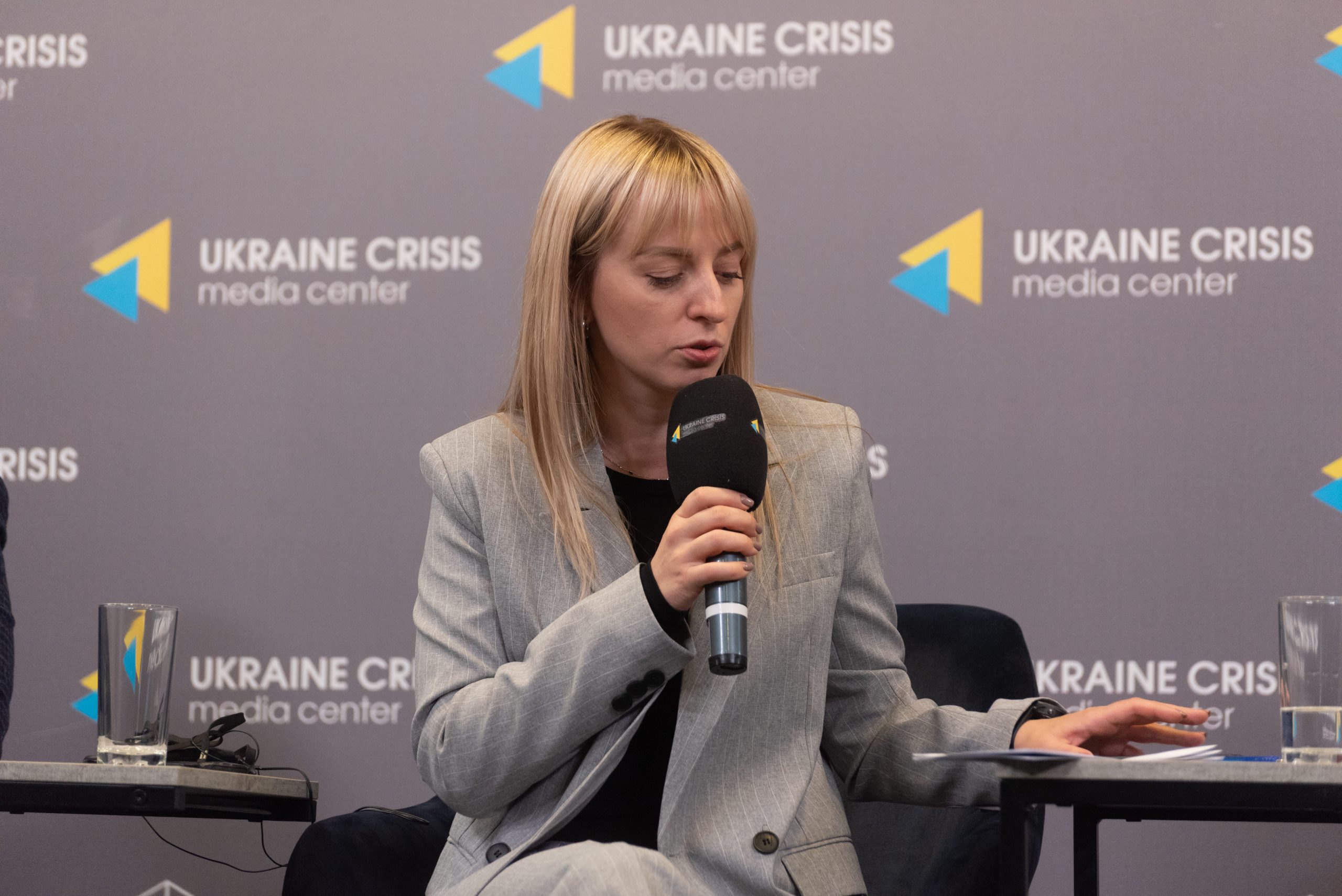
“It is also important that respondents noted the need for support from the European Union in investigating war crimes,” said Kateryna Pavlichenko, Deputy Minister of Internal Affairs. “This once again confirms the high public demand for the restoration of justice and the inevitability of punishment for criminals. It is essential for us that every Ukrainian, whether in a frontline city or in a relatively safe region, feels that the law enforcement system is working reliably to protect them.”
Pavlichenko also noted that the findings on threats and challenges are particularly valuable for shaping future cooperation with EUAM.
Hybrid threats and disinformation
The survey shows that 81% of Ukrainians believe hybrid threats from Russia are growing. Online recruitment by Russian special services (42%), fake news (32%), and cyberattacks (23%) are viewed as the most concerning. Two-thirds of Ukrainians rate the country’s preparedness to counter such threats as only moderate.
At the same time, 51% of respondents continue to rely on Telegram as their main source of information, followed by YouTube (25%) and personal networks (22%). However, Facebook and Instagram are seen as the main channels of disinformation (58%), alongside messenger services (45%). Independent journalists and the Centre for Countering Disinformation remain the most trusted actors in debunking fake news.
Oleksii Antypovych, Director of the Rating Group, noted: “We understand why trust in NATO is lower than in the European Union. There is a war in Ukraine, and all or most Ukrainians would naturally like and expect a higher level of protection from NATO. The fewer steps we see from international organisations to exert influence on Russia and the war, the lower the level of trust.”
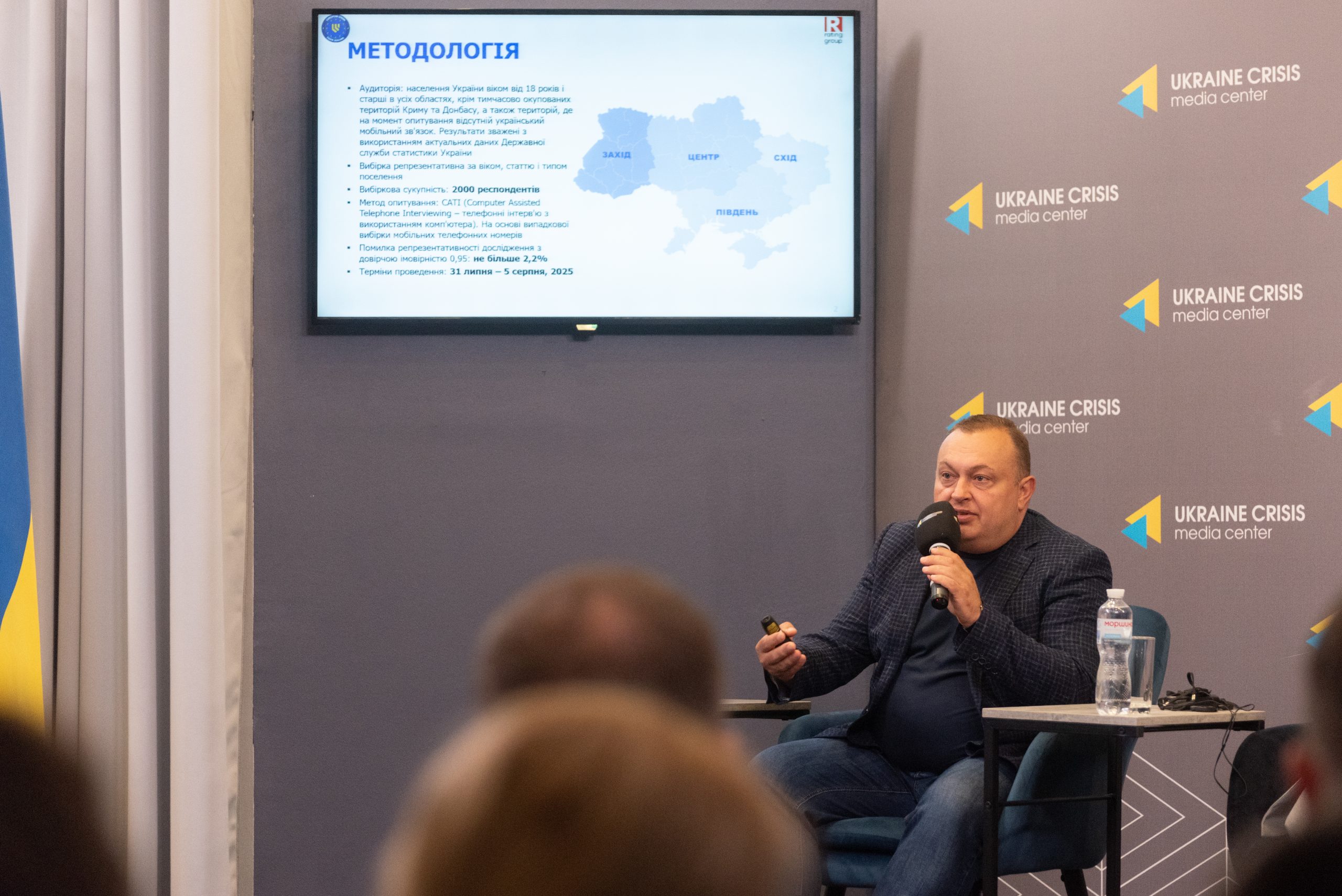
Reintegration of veterans
Reintegration of veterans emerged as one of the most pressing issues. Respondents identified post-traumatic stress and stress-related disorders (63%), disability (54%), and health problems (51%) as the key challenges facing those returning to civilian life. Rehabilitation (62%) was named the most important form of support, followed by employment opportunities (47%) and access to healthcare (43%).
Background
The survey was conducted by the Sociological Group “Rating” between 31 July and 5 August 2025, covering 2,000 respondents aged 18 and above across Ukraine, excluding temporarily occupied territories. The methodology applied Computer-Assisted Telephone Interviewing (CATI) with a margin of error not exceeding 2.2%.
The complete results of the survey can be downloaded here.


